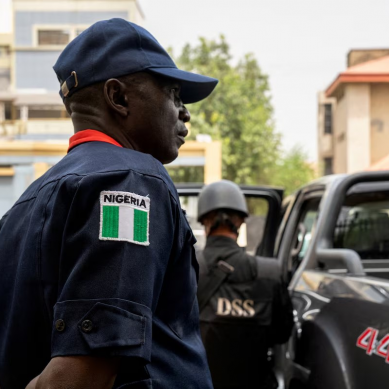
Support for South Africa’s governing African National Congress (ANC) has settled around 42 per cent in the days leading up to Wednesday’s election, an opinion poll showed, suggesting that an increase in support seen earlier this month has fizzled out.
Opinion polls released in March and April estimated backing for the ANC at around 39 per cent and 40 per cent respectively, but a newer “tracking poll” that has been adding new participants daily estimated the ruling party’s support had risen to more than 45 per cent by mid-May.
A result below 50 pr cent would mean the ANC would have to make a deal with one or more smaller parties to govern the country for the first time since coming to power 30 years ago, a watershed in the post-apartheid era.
In a Tuesday update of the tracking poll by South African think tank the Social Research Foundation, the ANC’s support was estimated at 42.2 per cent on May 27, the latest day for which data is available, under a scenario modelled for the 66 per cent turnout seen at the last national election in 2019.
Backing for the biggest opposition party the Democratic Alliance (DA) stood at 21.6 per cent, while support for former president Jacob Zuma’s new uMkhonto we Sizwe (MK) party was estimated at 12.4 per cent, above the 10.8 per cent seen for the longer-established Economic Freedom Fighters (EFF).
The ANC has not divulged how it would approach a post-election scenario involving a coalition or some other form of alliance, but the lower its vote share, the more it will have to offer other parties in terms of policy concessions or government jobs.
The Social Research Foundation said it had seen an unprecedented degree of uncertainty among survey respondents about which party to support, which had resulted in a small share of voters moving back and forth between the ANC, EFF, MK and the DA.
The ANC’s support has declined in each of the last three national elections, as opposition parties have increasingly capitalised on its failure to solve problems like high unemployment, corruption, crime and power blackouts. In 2019, it received 57.5 per cent of the vote.
The tracking poll started with a base sample of around 2,000 interviewees, after which it incorporated between 200 and 300 new respondents daily. It has a margin of error of just over 2 per cent.
- A Reuters report







